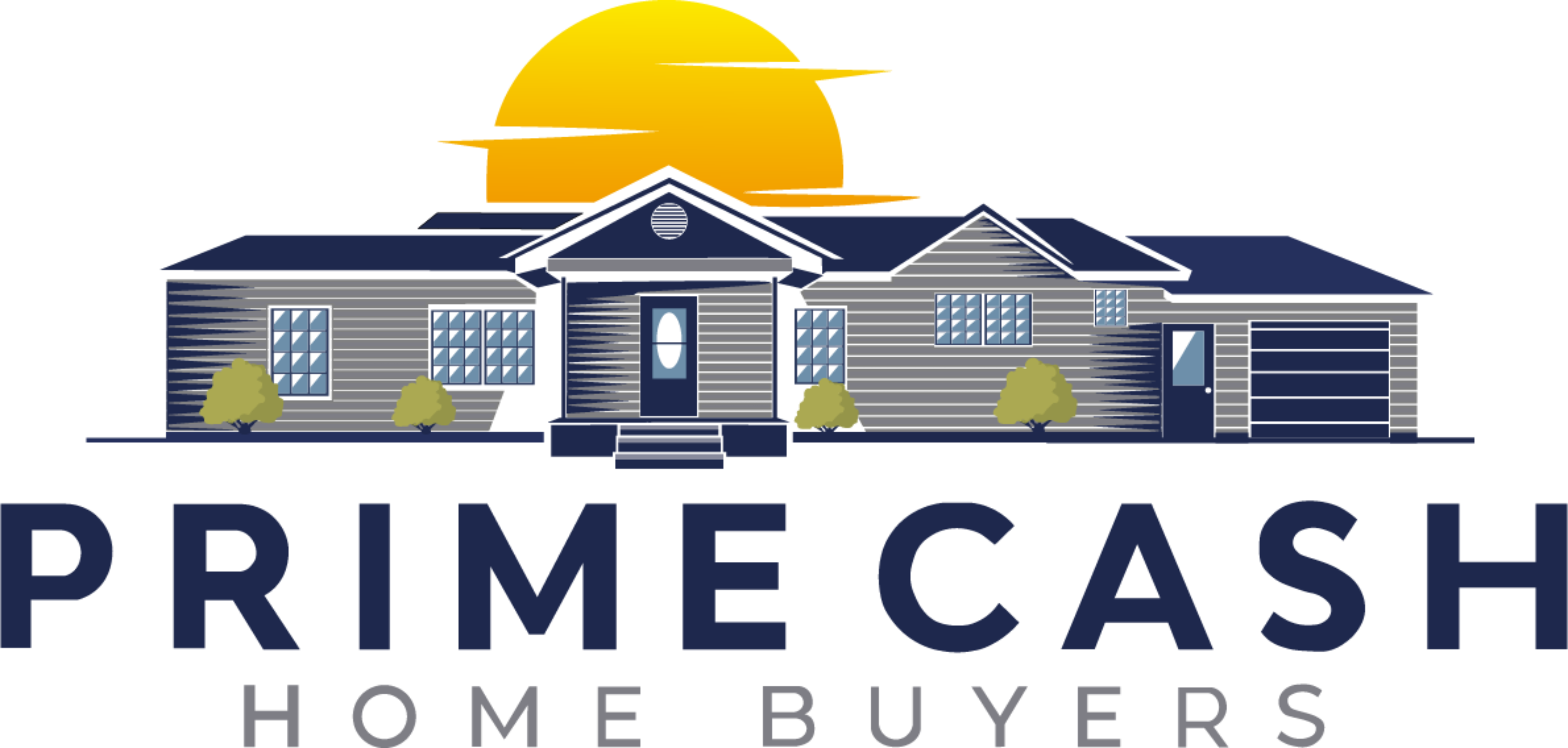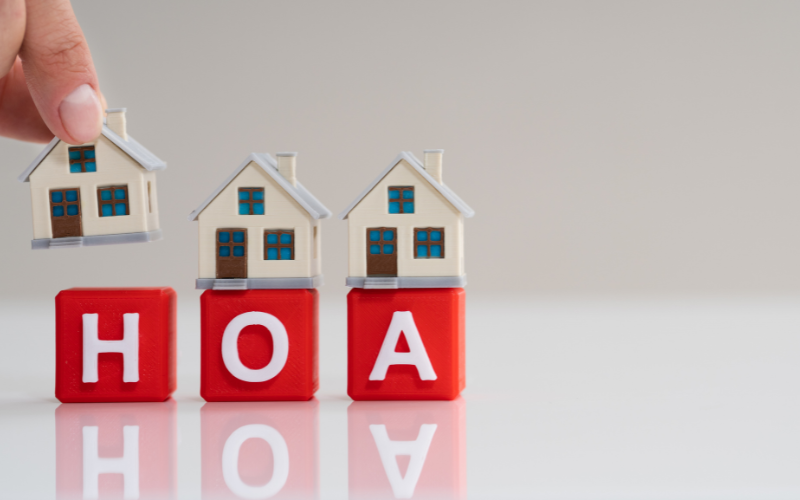
Understanding Homeowners Associations: Roles and Responsibilities
Homeowners Associations (HOAs) are very important to the management of Savannah, GA, neighborhoods, and it’s important for homeowners to know their roles and duties. These groups are set up to keep property values high and handle shared amenities by ensuring that community rules and laws are followed.
The homeowners’ association (HOA) collects dues from homeowners. The dues pay for the upkeep of common places like parks, swimming pools, and clubhouses. The HOA is also in charge of ensuring that building rules are followed so that the neighborhood looks nice and uniform.
Also, homeowners who break neighborhood rules can be fined or sued by their HOAs. This includes possibly starting the eviction process if the dues are not paid on time.
Knowing how an HOA works can help people avoid problems that can arise when they don’t follow the rules or pay their dues on time. To effectively lower the risk of foreclosure, homeowners should become familiar with the governing documents for their community, such as the Declaration of Covenants, Conditions, and Restrictions (CC&Rs), bylaws, and any other community rules that spell out both homeowner duties and HOA powers.
Common Misconceptions About Homeowners Associations
People often think that homeowners’ associations (HOAs), especially in Savannah, GA, only care about keeping the neighborhood looking nice and following tight rules, not what’s best for each homeowner. In fact, HOAs are very important for keeping property values high and giving residents a sense of community.
Some people also think that HOAs have unlimited power regarding defaults. Many homeowners think that their homeowners association (HOA) can easily start the foreclosure process for small violations or unpaid dues.
On the other hand, in Georgia, HOA foreclosure is controlled by specific laws that ensure homes are treated fairly and give homeowners chances to fix problems before drastic measures are taken. Some residents also think that all HOAs in the state work the same way. However, each association has its own set of covenants, conditions, and restrictions (CC&Rs) that govern how it works and makes decisions.
Also, remember that HOAs can charge extra fees or fine people for not following the rules, but they usually do so after a set process that is meant to be fair and clear. By busting these myths, homeowners in Savannah can better understand their rights and duties in a community managed by an HOA.
Understanding the Limits of HOA Power in Georgia
People in Savannah, Georgia, need to know how strong homeowners’ groups (HOAs) really are so they can better understand how likely it is that their homes will go into foreclosure. Homeowners associations (HOAs) in Georgia have a lot of power to make sure that the rules and laws of the neighborhood are followed. They can fine people who don’t follow the rules or pay their dues on time as one way to do this.
They have some power, but not a lot. The HOA can start the foreclosure process if a homeowner doesn’t pay assessments or fees as needed by the community’s rules. This is the law in Georgia.
Still, state law requires HOAs to take certain legal steps before they can begin the eviction process. First, the association usually has to put a lien on the property and give the homeowners plenty of time and notice to pay any outstanding dues.
These laws are important for homeowners to know so they can handle any issues before they get out of hand and possibly escape the pricey foreclosure process that their HOA starts.
The Role of State Laws in Governing HOAs
People who live in Savannah, GA, need to know how state laws affect homeowners associations (HOAs) in order to fully grasp the complex dangers of HOA eviction. Georgia laws say how HOAs should work. Some of the things that these rules cover are taxes, liens, and the process of default.
There are some things that these laws allow HOAs to do to protect members’ rights, but they also make it harder for them to do those things. A homeowner association (HOA) must follow certain legal steps before starting the foreclosure process. For example, they must give homeowners enough notice and chances to deal with late payments before starting the foreclosure process.
Each state’s laws also say how HOA liens compare to other bills, like mortgages, in terms of their importance. People who live in Savannah and own homes should read these rules from the state to better understand what their rights and duties are in an HOA community.
By staying in touch with their association board and following both state law and HOA rules, they can lower the chance that they will not pay.
Legal Rights of Homeowners in HOA Communities
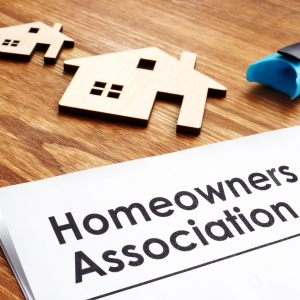
People in Savannah, GA, who live in an HOA community need to know their rights if they don’t want the bank to take their houses away. In Georgia, homeowners’ clubs can put liens on homes that aren’t paid for when fees or dues are due. If this isn’t fixed right away, the land could be taken away by default.
People need to learn the rules of many homeowner associations (HOAs). Covenants, conditions, and limits (CC&Rs) spell out what each person in the society can and cannot do. People who own homes should know what laws in their state protect them from unfair HOA practices. For example, they should know the rules about how much notice they need to give before they start the process of evicting the tenant.
Homeowners can keep their neighborhood quiet and avoid being kicked out if they know their rights and help run their association. You can also talk to a lawyer who knows Georgia’s property rules to feel safer and learn more about your rights as a homeowner in an HOA-run community.
Navigating HOA Fees and Assessments: A Guide for Homeowners
People who live in Savannah, GA, need to know how to handle their HOA fees and taxes if they don’t want their homes to go into foreclosure. Homeowners Associations (HOAs) can charge many fees and taxes that can be very expensive for people if they are not handled correctly.
It’s important to know how these fees are determined. Regular dues pay for amenities and upkeep of the community, while repairs or changes, such as dealing with fire-damaged properties, may be covered through a special assessment. Homeowners should carefully read the rules and regulations of their HOA to understand what fees or price hikes could occur.
That way, you’ll know what the costs will be in the future. Make a budget and stay in touch with the HOA board. If you don’t pay these fees on time, the group could fine you, put a lien on your property, or even take your home back.
You are less likely to face serious issues if you notify the HOA ahead of time about any money problems. They might be able to help you with payment plans or fee waivers. To protect your investment in a home in one of Savannah’s busy areas, keep track of all communications and resolve any disputes quickly. If the situation becomes overwhelming, Prime Cash Home Buyers can help by offering guidance and solutions for homeowners who need to sell fast or explore other options.
Financial Management Within an HOA: Best Practices
Homeowners who want to avoid foreclosure need homeowners’ groups (HOAs) that are good with their money. By following best practices, an HOA can keep its money safe and avoid costly court cases.
The first step is to make a detailed budget that accurately shows how much the group makes and spends. This way, money can be allocated for fixes, upkeep, and savings. Regular financial audits are also important to keep things open and honest and ensure that all actions are recorded and follow the rules set by the state.
A clear plan for collecting fees will help you keep track of your money and reduce late payments. It’s important to be honest with homeowners about any changes to fees or taxes so that everyone can trust and work together.
Residents should also ensure they have a backup fund with enough money to cover any unplanned costs. This way, they won’t have to borrow money or pay extra taxes, which could strain their finances. By making smart investments and planning, people can protect their community’s assets and raise property values over time.
How HOAs Can Enforce Rules and Regulations
Homeowners Associations (HOAs) in Savannah, GA, have specific powers to enforce rules and laws. These powers can include fines, limiting access to community amenities, or even starting the foreclosure process. By following rules and bylaws, these HOAs keep property values high and make sure everyone gets along by enforcing them.
If a homeowner doesn’t follow these rules, the HOA may try to fix the problem by giving them warnings or fines. If people don’t follow the rules, the association may take stronger steps to make them follow, including putting a lien on the property.
As a last option, the HOA could pursue foreclosure if the owner didn’t pay their dues or continued breaking the rules. To avoid these extreme steps, homeowners must understand their association’s rules and know what to do and what could happen if they don’t.
What Happens When You Violate HOA Covenants?
When homeowners in Savannah, GA, break HOA rules, they may have to deal with serious penalties that can lead to foreclosure. At first, the homeowners’ association (HOA) usually sends the homeowner a warning or letter of violation that spells out which specific covenant has been broken.
As stated in their governing papers, the HOA may fine or punish the person who broke the rules if the problem is not fixed within the time limit. These fines can add up quickly, making it hard for the homeowner to pay their bills.
If you don’t follow the rules, the HOA could take legal action, including putting a lien on your land. This lien is a strong way to ensure people follow the rules and pay back unpaid fines or dues.
Georgia law says that if these debts are not paid, the HOA can start the foreclosure process on the homeowner’s house. Homeowners in Savannah need to be aware of these risks if they don’t want to lose their homes to HOA foreclosure moves caused by covenant violations.
The Process of Dispute Resolution with Your HOA

Homeowners in Savannah, GA, need to know the exact steps and rules spelled out in their community’s governing documents to resolve conflicts with their Homeowners Association (HOA). Usually, this process starts with an official written complaint about the problem sent to the HOA board or management company.
Homeowners need to know the covenants, conditions, and restrictions (CC&Rs) that govern their community. Often, these papers spell out how to settle disagreements. Opening up lines of communication with the HOA board can help bring a more peaceful answer.
Many Savannah homeowner associations might choose mediation or arbitration to settle disagreements without going to expensive court cases. At this point, it’s very important to know your rights and duties under Georgia state law, as this can affect how disagreements are settled and whether there are risks of foreclosure due to unresolved issues.
If homeowners think their association isn’t addressing their issues, they might also want to talk to an attorney specializing in HOA law.
Strategies for Communicating Effectively with Your HOA Board
For Savannah, GA homeowners who want to lower their risk of loss, it’s important to communicate clearly with their Homeowners Association (HOA) board. First, learn about the HOA’s rules and regulations, such as the bylaws and covenants, conditions, and limits (CC&Rs).
With this information, you’ll be able to have smart conversations about your rights and duties. Regularly going to board meetings will help you stay up to date on any policy changes that might affect your property.
By communicating with board members regularly and politely, you can build a good relationship with them and solve problems before they become financial disputes. When you talk about worries or requests, be clear and to the point, and back up your point of view with any evidence you need to.
Being involved in neighborhood events also builds relationships and makes it easier to talk to the board. You can make it much less likely that the HOA will start foreclosure proceedings without warning by keeping lines of communication open and showing that you are ready to work together on solutions.
Steps to Take If You Face Unfair Treatment by Your HOA
You must know what to do as a homeowner in Savannah, GA, if your Homeowners Association (HOA) is being unfair to you. This will protect your rights and property. First, read your HOA’s covenants, conditions, and limits (CC&Rs) very carefully to get a feel for the rules that guide your neighborhood.
Write down any times you felt you were treated unfairly or when the HOA did something that wasn’t in line with its rules. The HOA board can hear your concerns if you write them a formal letter and ask for an answer.
Copy all of your messages just in case you need them again. With the help of a neutral third party, you can settle your differences without making things worse if you need to.
If you can’t work things out informally, talking to a local lawyer who knows Georgia real estate law can help you figure out what your legal options are. You can protect yourself from mortgage risks and ensure your complaints are taken seriously if you know Georgia’s specific rules about homeowners associations (HOAs).
Protecting Your Property Rights Against HOA Actions
People who own homes in Savannah, GA, need to know the law and what they can do to protect their rights to their property against possible HOA eviction actions. Homeowners associations (HOAs) have a lot of power, and the fact that they can start foreclosures for things like not paying dues or breaking the rules can be very bad.
You should know the covenants, conditions, and restrictions (CC&Rs) that guide your HOA so that you know what your duties are and how much power the HOA has. You can learn about any changes or steps the board takes that might affect your property if you frequently attend meetings.
Also, it’s important to stay in touch with your HOA. Problems and issues should be dealt with immediately by working out payment plans. This will keep things from getting worse. Talking to a real estate agent in your area who focuses on HOA law can help you get through tough times and ensure that Georgia law protects your rights.
Not only does learning about things and getting active lower your risks, but it also strengthens your case if you have a problem with the homeowners’ association.
How to Challenge Unreasonable HOA Decisions Legally
Homeowners in Savannah, GA, who think their Homeowners Association (HOA) is making unfair decisions should know that they have the legal right to fight these decisions. It’s also important for homeowners who think their HOA has gone too far to understand the details of HOA default risks.
The first thing you should do is read the Covenants, Conditions, and Restrictions (CC&Rs), policies, and any other rules that explain what homeowners are responsible for and what the HOA can do. If a choice seems unfair or arbitrary, homeowners can ask for a formal meeting with the HOA board to discuss their concerns and get more information.
Also, it’s a good idea to talk to a real estate or HOA law expert to find out if there are any possible reasons to challenge the choice. Homeowners in Georgia are protected by state laws against unfair HOA practices. Knowing these laws is important for building a good case.
Mediation or settlement might also be good choices before going to court. By researching and using the legal system, homeowners can successfully fight against unfair HOA decisions and protect their property rights. If you feel stuck or need to explore selling your home as an option, contact us today for guidance and a no-obligation cash offer.
Legal Recourse Available to Homeowners Against HOAs
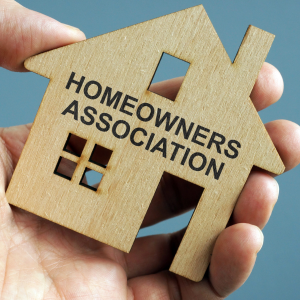
If a Homeowners Association (HOA) in Savannah, GA, starts the eviction process on a homeowner, that homeowner has several legal options to protect their property rights. Homeowners who risk losing their homes to foreclosure because of an HOA need to know about these choices.
In Georgia, homeowners can question the legality of the foreclosure process if the HOA doesn’t follow the steps spelled out in the community’s rules and local laws. Talking to a good real estate lawyer can help you think of ways to fight back against unfair foreclosure actions, like challenging any unpaid fees or dues that aren’t being correctly calculated.
Homeowners can also try mediation or arbitration to settle disagreements with the HOA without going to court. These options often result in better outcomes. Georgia homeowners need to know their rights, which could include fighting against fines or fees that are too high and make it hard for them to pay their bills.
Talking to the HOA board and attending meetings can also help you negotiate payment plans or other ways to keep your home from going into foreclosure.
Can the HOA Foreclose Your House in Georgia?
Homeowners in Savannah, GA, need to be very aware of how their Homeowners Association (HOA) can put their homes at risk of default. If a homeowner in Georgia doesn’t pay their association dues or special assessments, the HOA has the legal right to take back the land.
Homeowners need to know that an HOA foreclosure differs from a bank foreclosure. Both can cause you to lose your home, but they do so in different ways and at different times. Under Georgia law, an HOA can start the foreclosure process if it gives the right warning and follows other legal steps.
This shows how important it is to pay your HOA fees on time and handle any problems quickly. Also, homeowners should know the rules for their neighborhood and talk to a lawyer if they think they might lose their home to foreclosure.
Not only does knowing about these default risks help protect your investment, but it also helps you stay in good standing in your Savannah neighborhood.
Can an HOA Confiscate Your Property?
People who own homes in Savannah, GA, should be aware of the risks associated with Homeowner’s Association (HOA) eviction. An HOA can’t take your property directly, but if you don’t pay your dues or follow the rules, it can start the eviction process.
Savannah homeowners need to know the laws and steps that go into HOA foreclosure to avoid problems. If you don’t pay your HOA fees, they can put a lien on your property. If you don’t pay, this could lead to a court foreclosure.
In other words, the house could be auctioned to pay off the HOA bill. To lower these risks, homeowners should learn about their association’s rules and the Georgia laws that guide HOAs.
Talking to Savannah lawyers specializing in real estate and HOA law can give you good advice and help protect your home from possible HOA eviction actions.
Is the HOA Allowed to Go Into Your House?
People in Savannah, GA, often worry about whether or not the Homeowners Association (HOA) can access their homes when they are trying to determine their HOA default risks. By law, HOAs usually can’t access a homeowner’s land without permission.
It’s the HOA’s job to keep the common areas in good shape and ensure people follow the rules of the neighborhood. People shouldn’t let them into other people’s private lives, but people who live in the neighborhood should know about any parts of the HOA rules that let people in under certain circumstances, such as the Covenants, Conditions, and Restrictions (CC&Rs).
Most of the time, this is because of an emergency or because the HOA needs to fix something that affects more than one property or the common areas. Read your CC&Rs carefully to know your rights and responsibilities when it comes to land access. This is true in Savannah, GA, as well as everywhere else.
If you don’t understand the rules, you can end up in fights or even court cases. It’s important to know your HOA’s rules so you don’t get into pointless fights and your home is safe from unwanted guests while you deal with the risks of possible default.
What Can HOAs Do If You Don’t Pay?

People in Savannah, GA, who own homes should know what could happen if they don’t pay their HOA fees. The HOA can sue a homeowner in a number of ways if they don’t pay their bills.
To get people to pay on time at first, the HOA may charge late fees or interest on payments that are past due. These groups can put a lien on the property if the owner doesn’t pay their dues. This is a formal claim that might make it harder for them to sell or refinance their house.
If the debt is still unpaid, the worst thing that could happen is that a Savannah HOA might take steps to take back the property. In other words, they can go to court and sell the house to get the money they owe plus any other costs.
Homes should be aware of these risks and talk to their HOA about them so they don’t have to take such hard steps. If you live in Savannah, GA, you can protect your home and your money by learning about the risks of HOA eviction and moving quickly.
Looking to sell your Savannah, GA, house faster and without stress? At Prime Cash Home Buyers, we make the process simple. Whether you want to avoid costly repairs, sell your house by owner, or close quickly, we’ve got you covered. We provide fair cash offers, take care of all the paperwork, and handle every detail so you can confidently move forward. Contact us today at (706) 670-6543 for your free, no-obligation cash offer and see how easy it is to sell your home for cash in Pooler, GA, and nearby areas!
Helpful Savannah Blog Articles
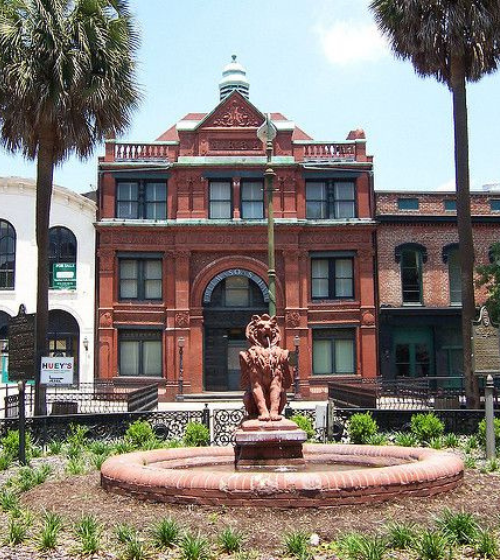
| INBOX | FORECLOSING | ATTORNEYS | LAWYER | CONDOMINIUMS | |
| CONDOMINIUM ASSOCIATIONS | RESIDENTIAL CONDOMINIUMS | PROPERTY OWNER | MORTGAGE RATES | HOMEBUYING | HOME LOAN |
| MORTGAGE LENDER | MORTGAGE LENDING | COVENANTS RUNNING WITH THE LAND | DECLARATION OF PROTECTIVE COVENANTS | RESTRICTIVE COVENANT | INFORMATION |
| LENDING | LAWSUIT | SIMPLE INTEREST | EASEMENTS | DEBT COLLECTION | DEBT COLLECTORS |
| FAIR HOUSING | FEDERAL FAIR HOUSING ACT | HOUSING DISCRIMINATION | CREDIT | ATTORNEYS’ FEES | ATTORNEY’S FEES |
| CORPORATIONS | REFINANCING | NONPROFITS | LICENSE | GOOD FAITH | DISCRIMINATION |
| DATABASE | LENDERS | BOARD OF DIRECTORS | INSURANCE | FINANCES | CREDIT REPORTING |
| CREDIT SCORE | ARTICLES OF INCORPORATION | HUD.GOV | HUD’S | TAXES | PROPERTY TAXES |
| NONPROFIT CORPORATION | MONEY | TENANTS | JUDGMENT | FHA | EQUITY |
| COMMON LAW | ATTORNEY GENERAL | ATLANTA | FORECLOSE ON YOUR | COVENANTS CONDITIONS AND | COVENANTS CONDITIONS AND RESTRICTIONS |
| FORECLOSE ON YOUR HOME | OF A HOMEOWNERS ASSOCIATION | DECLARATION OF COVENANTS CONDITIONS | OF COVENANTS CONDITIONS AND |
